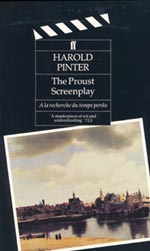While in NYC I read a newly translated text from Balzac from 1830 called
Treatise on Elegant Living, which is a wonderful, very witty, brief book about elegance in some ways but also about the mania for dandyism at that time. I can't even really describe it, but highly recommend it - and when I read this passage:
"What an ineffable pleasure for the observer, for the connoisseur, to encounter on the streets of Paris, along the boulevards, those women of genius who, after having written their name, their rank, and their fortune in their feeling for their clothing, appear as nothing to the eyes of the common herd but are an absolute poem for artists, for society people out strolling! It is a perfect harmony between the color of the outfit and that of drawings; it is the finesse of the charms that reveals the industrious hand of a skilled chambermaid. These high feminine powers know wonderfully well how to conform to the humble role of pedestrian, for they have so often experienced the audacities authorized by an equipage; for it is only those accustomed to the luxury of the coach who know how to get dressed to go on foot."
it reminded me of:
"I assigned the first place, in the order of aesthetic merit and of social grandeur, to simplicity, when I saw Mme. Swann on foot, in a 'polonaise' of plain cloth, a little toque on her head trimmed with a pheasant's wing, a bunch of violets in her bosom, hastening along the Allée des Acacias as if it had been merely the shortest way back to her own house, and acknowledging with a rapid glance the courtesy of the gentlemen in carriages, who, recognising her figure at a distance, were raising their hats to her and saying to one another that there was never anyone so well turned out as she. But instead of simplicity it was to ostentation that I must assign the first place if, after I had compelled Françoise, who could hold out no longer, and complained that her legs were 'giving' beneath her, to stroll up and down with me for another hour, I saw at length, emerging from the Porte Dauphine, figuring for me a royal dignity, the passage of a sovereign, an impression such as no real Queen has ever since been able to give me, because my notion of their power has been less vague, and more founded upon experience—borne along by the flight of a pair of fiery horses, slender and shapely as one sees them in the drawings of Constantin Guys, carrying on its box an enormous coachman, furred like a cossack, and by his side a diminutive groom, like Toby, "the late Beaudenord's tiger," I saw—or rather I felt its outlines engraved upon my heart by a clean and killing stab—a matchless victoria, built rather high, and hinting, through the extreme modernity of its appointments, at the forms of an earlier day, deep down in which lay negligently back Mme. Swann, her hair, now quite pale with one grey lock, girt with a narrow band of flowers, usually violets, from which floated down long veils, a lilac parasol in her hand, on her lips an ambiguous smile in which I read only the benign condescension of Majesty, though it was pre-eminently the enticing smile of the courtesan, which she graciously bestowed upon the men who bowed to her. That smile was, in reality, saying to one: "Oh yes, I do remember, quite well; it was wonderful!" to another: "How I should have loved to! We were unfortunate!", to a third: "Yes, if you like! I must just keep in the line for a minute, then as soon as I can I will break away." When strangers passed she still allowed to linger about her lips a lazy smile, as though she expected or remembered some friend, which made them say: "What a lovely woman!". And for certain men only she had a sour, strained, shy, cold smile which meant: "Yes, you old goat, I know that you've got a tongue like a viper, that you can't keep quiet for a moment. But do you suppose that I care what you say?" Coquelin passed, talking, in a group of listening friends, and with a sweeping wave of his hand bade a theatrical good day to the people in the carriages. But I thought only of Mme. Swann, and pretended to have not yet seen her, for I knew that, when she reached the pigeon-shooting ground, she would tell her coachman to 'break away' and to stop the carriage, so that she might come back on foot. And on days when I felt that I had the courage to pass close by her I would drag Françoise off in that direction; until the moment came when I saw Mme. Swann, letting trail behind her the long train of her lilac skirt, dressed, as the populace imagine queens to be dressed, in rich attire such as no other woman might wear, lowering her eyes now and then to study the handle of her parasol, paying scant attention to the passers-by, as though the important thing for her, her one object in being there, was to take exercise, without thinking that she was seen, and that every head was turned towards her. Sometimes, however, when she had looked back to call her dog to her, she would cast, almost imperceptibly, a sweeping glance round about."
Christina







